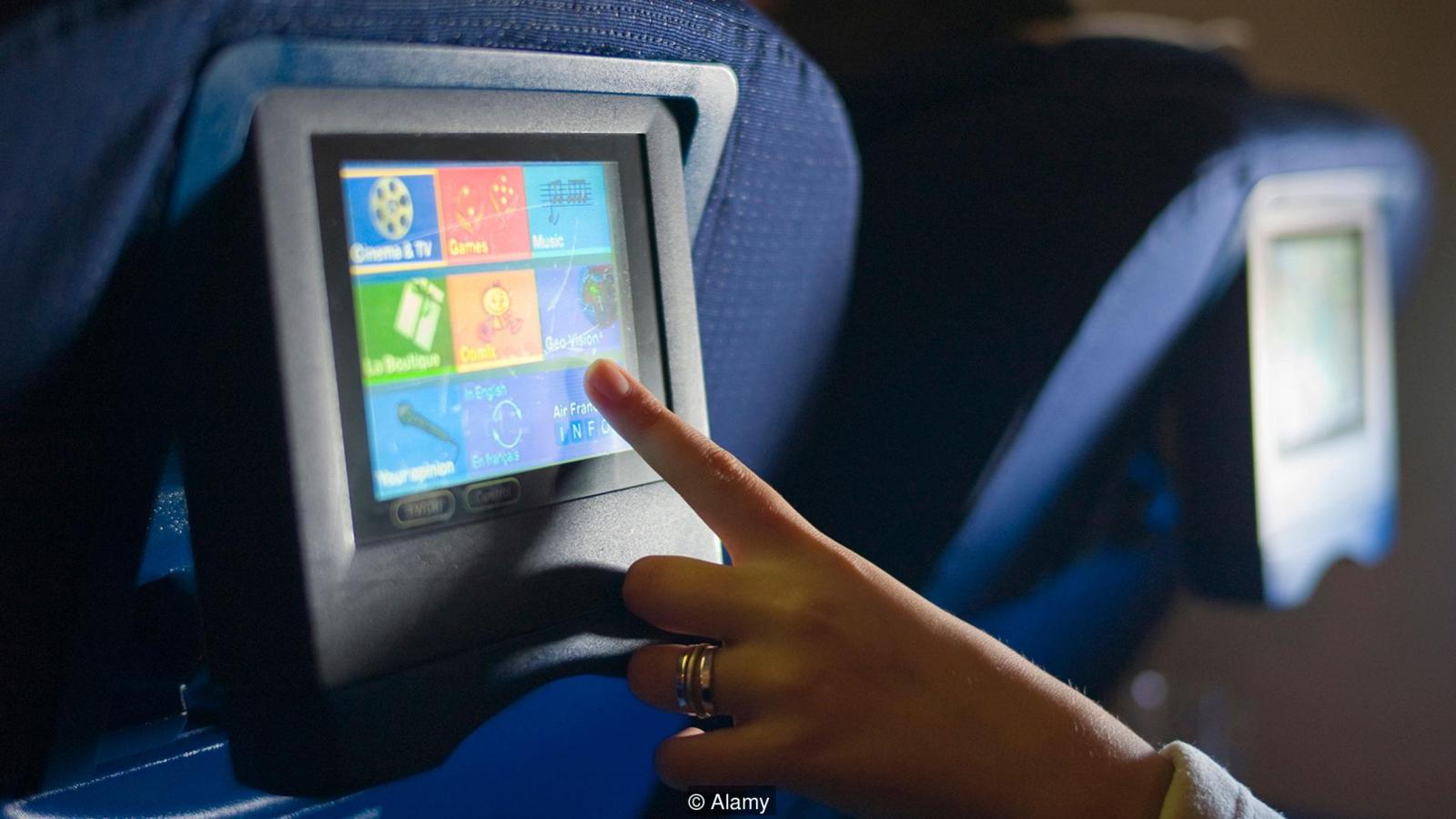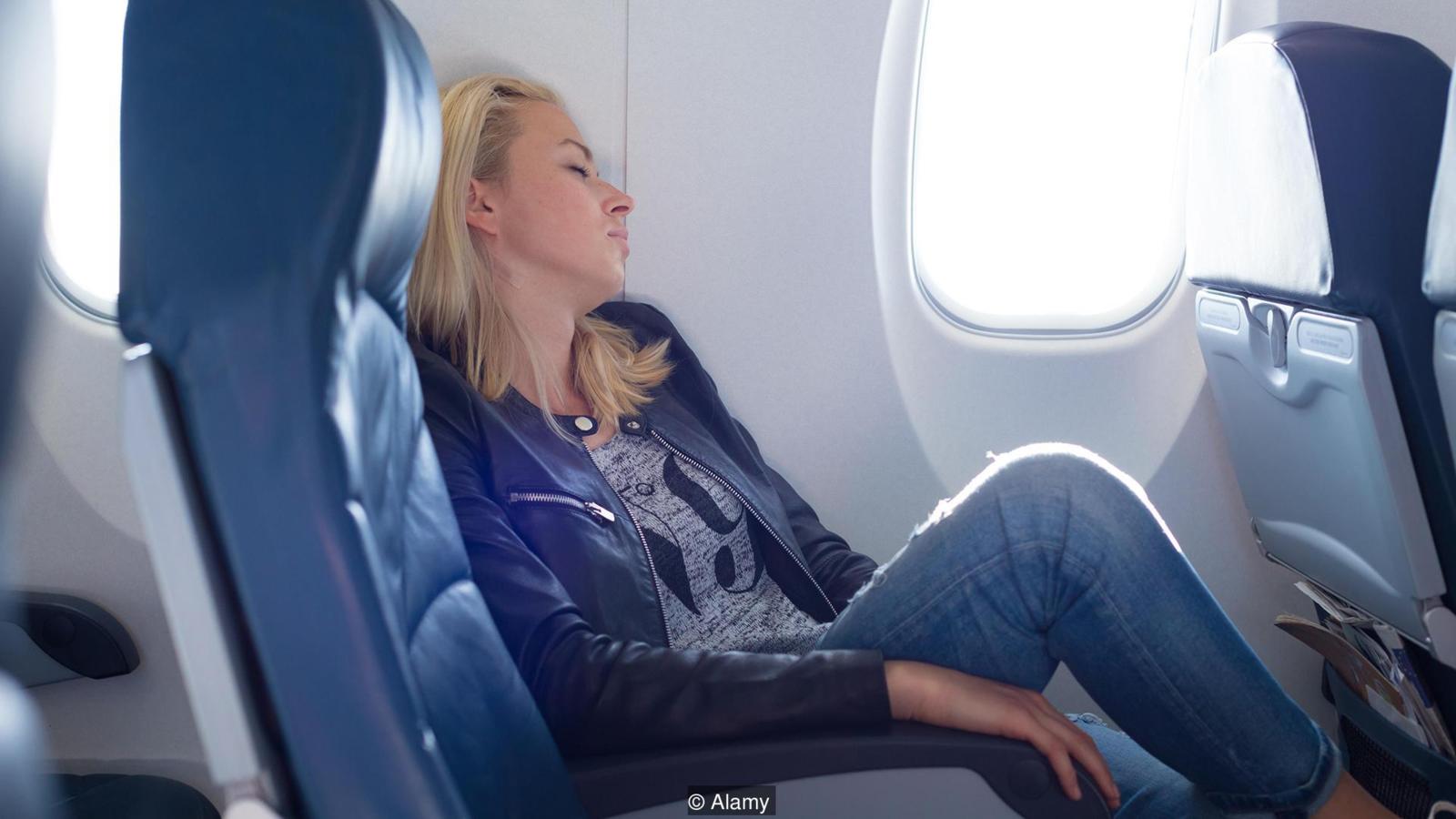Air travel became commonplace - but they still affect our bodies and brains.

A tiny screen, jumping in different directions, and often intermittent sound, as from a pan - this is watching a video during the flight, and it can hardly be called a sensation with immersion.
However, people who fly frequently by airplanes find in themselves or others an uncharacteristic emotional response when watching even the most innocuous films during the flight. Even positive comedies such as Bee Movie, Bere Movie, Vegas Bridesmaids or The Simpsons can cause tears in passengers who usually don’t cry from watching such films on the ground.
Physicist and TV host
Brian Cox and
musician Ed Sheeran admitted that when they watch movies in the air they are overwhelmed with emotions. In a survey conducted at Gatwick Airport in London,
15% of men and 6% of women reported that they were more likely to cry when watching a movie in flight compared to watching a movie at home.
One major airline even went as far as “
emotional health warnings, ” brought to the attention of the public prior to the inclusion of a film that could upset customers.
There are many theories about why many passengers in flights become more at risk of crying - sadness about parting with loved ones, joyful excitement about traveling, homesickness. But there is evidence that the flight process itself can influence this.
There are more and more studies showing that flying at a height of 10 km above the ground in a sealed metal pipe can in a strange way affect our consciousness, change our mood, the work of the senses, and even generate an itch sensation.

“In the past, research on this topic was practically not carried out, because for healthy people this effect is not a big problem,” says Jochen Hinkelbein, president of the German aerospace medicine community and deputy director for emergency care at the University of Cologne. “But with increasing popularity and lowering the cost of air travel, both older and less healthy people began to use airplanes. This draws more attention to the study of this area. "
Hinkelbein is one of the few researchers studying how flight conditions can affect a person’s body and mind.
There is no doubt that the cockpit is a very strange place for a man. This is a strange environment in which the air pressure is comparable to the one that is present on a mountain 2.4 km high. Humidity is less than in some of the driest deserts on earth, and the air pumped into the cabin is cooled to 10 ° C to compensate for all the excess heat received from bodies and electronics.
Reduced pressure can reduce the amount of oxygen in the blood of passengers by 6–25% - if this happened in a hospital, doctors would prescribe oxygen breathing to the patient. For healthy passengers, this should not be a big problem, although it
can cause additional difficulties for the elderly and people with breathing
problems .

Some studies show that even relatively small levels of hypoxia, oxygen starvation, can affect our ability to think clearly. When the amount of oxygen is similar to an altitude of 3.6 km above sea level, healthy adults demonstrate
significant changes in memory performance ,
ability to compute and make decisions . Therefore, the flight rules insist that pilots must use oxygen masks if the pressure in the cockpit falls below what is found at such an altitude above sea level.
Oddly enough, the air pressure at a height of 2.1 km above sea level
increases the reaction time - this is bad news for those who like to play computer games during the flight.
Some studies show that when the level of oxygen is similar to an altitude of 2.4 km above sea level, the speed of cognitive functions and logical thinking can decrease - this is the level of oxygen characteristic of an aircraft cabin. But for most of us, these effects are unlikely to contribute to a serious clouding of consciousness.
“A healthy person, be it a pilot or a passenger, should not have cognitive problems at such a height,” says Hinkelbein. “And if we are talking about not very healthy people, people with the flu or health problems, then hypoxia can decrease the oxygen saturation of the tissues more strongly, with the result that
cognitive impairment will become more noticeable .”
But Hinkelbein says that the slight hypoxia that exists during flights can affect our brain in a more obvious way - it tires us. Studies conducted in
hypobaric pressure chambers and over untrained
soldiers arriving in mountain regions show that short-term stays at altitudes more than 3 km above sea level may increase fatigue, but for some people these effects may begin at lower altitudes.
“When I sit in an airplane, I immediately get tired after taking off and it is easier for me to fall asleep,” explains Hinkelbein. “I do not lose consciousness due to lack of oxygen, but hypoxia is one of the factors affecting this state.”
And if you are still patient until the team extinguishes the lights in the cockpit, you can experience a different effect of reduced pressure. Night vision in humans can deteriorate by 5-10% at an altitude of 1.5 km. This is due to the fact that the photoreceptor cells of the retina, necessary for night vision,
are in dire need of oxygen , and they may lack it at high altitudes, because of which they can work less efficiently.
Flights disrupt the work of our other senses. The combination of low pressure and humidity can reduce the sensitivity of the taste buds to salt and sugar by 30%. A study commissioned by Lufthansa showed that spices added to tomato juice
seem tastier in flight .
Dry air can impair our sense of smell, which is why food loses its taste. That is why many airlines add more condiments to food, so that it looks tastier in flight. And it is probably good that our sense of smell is dulled during flights, since changes in air pressure can lead to an
increase in the release of gases from passengers .
And if the inhalation of your neighbors' gasses does not seem too strange to you, then know that reducing pressure can also lead to a decrease in comfort. A 2007 study showed that after people spend more than three hours at altitude with pressure corresponding to the pressure in the cabin, people more often complain of discomfort.
Combine this with low humidity, and it will not be surprising that it is difficult for us to sit motionless for long flights. A study by Austrian scientists has shown that long-haul flights can
dry our skin by 37% , which can lead to itching.
Low pressure and humidity can also
exacerbate the effects of alcohol and hangovers that occur the day after they are taken.
But even more bad news for those who are already, perhaps, afraid to fly.
"
Hypoxia can increase anxiety levels ," explains Valerie Martindale, president of the Aerospace Medical Association of King's College London. But flights can affect not only anxiety. Several studies have shown that time spent at high altitude can lead to negative emotions -
tension ,
hostility , as well as a
decrease in energy levels and the
ability to withstand stress .
“We have shown that some aspects of mood can be influenced by air pressure equivalent to a height of 1.8– 2.4 km,” says Stephen Legge, professor of ergonomics at Massey University in New Zealand, who studies the effects of small hypoxia on people. This may explain the increased tendency to tears while watching movies in flight, but still most of the side effects occur at heights, with less air pressure than on commercial flights. Recently, Legg also showed that slight dehydration, often encountered in flights,
can also affect mood .
“We know very little about the effects of a combination of several moderately stressful factors that affect cognitive abilities and mood,” he adds. “But we know that there is a fatigue effect associated with long air flights, for which probably a combination of these moderately stressful factors is responsible.”
But there is still a study showing that at high altitudes people
may feel happier .
However, Stephen Groening, a professor of film and media at the University of Washington, believes that happiness can be expressed in tears. The boredom of flight and its relief caused by watching a movie, combined with the privacy of a small screen and headphones,
can cause a person to have tears of joy, and not sadness , he said.

“The entertainment center device creates a feeling of intimacy that can lead to increased emotional responses,” says Groening. “Tears in airplanes can be tears of relief, not sadness.”
But Hinkelbein discovered another strange change in the behavior of the human body, also capable of affecting its normal operation. In a new, not yet published study conducted with colleagues from the University of Cologne, they showed that 30 minutes spent in conditions similar to an airplane can change the balance of molecules associated with the immune system in the blood. This may mean that low blood pressure changes the functioning of the immune system.
“People think they have a cold or have the flu while traveling because of climate change,” says Hinkelbein. “But this can be caused by changes in the immune response during flight.” It is necessary to investigate in more detail. ”
If flying really affects the functioning of the immune system, it can not only make us more susceptible to infections, but also affect our mood. The increase in inflammation caused by the immune system
is believed to be
associated with depression .
“The vaccine-induced inflammatory process can cause a drop in mood for up to 48 hours,” says Ed Bullmore, head of the psychiatric department at the University of Cambridge, who studies the effects of the immune system on mood problems. "It would be interesting to know that a 12-hour flight to another part of the world leads to similar results."